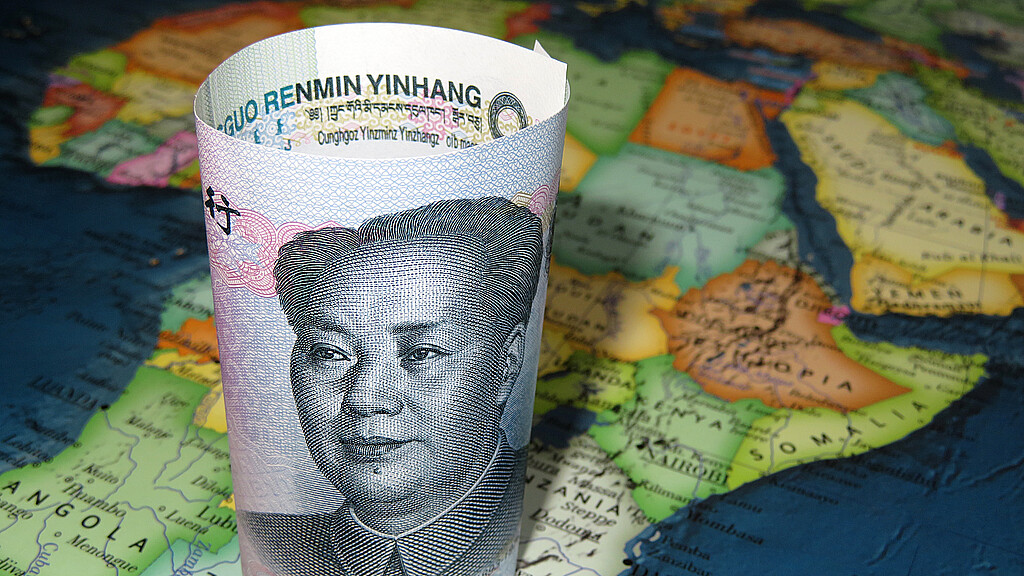Opinion & Reviews
Opinion: U.S. must declare independence from China
The U.S. is China's strongest rival, and Beijing’s actions make clear it seeks to overtake Washington not only economically, but also in areas of aerospace, industry, medicine, science, technology, and the military

May 24, 2023 1:11pm
Updated: May 25, 2023 1:52pm
In view of the harm inflicted by the People’s Republic of China on the United States, the danger it poses, and the toxic economic interdependence it has created, the time has come for Washington to break ties with Beijing.
In addition to its long list of illegal acts and unfair practices against the United States, China is keen on claiming its place atop a new world order on the strength of boundless ambition, unscrupulous practices, and dirty dealing.
The U.S. is China's strongest rival, and Beijing’s actions make clear it seeks to overtake Washington not only economically, but also in areas of aerospace, industry, medicine, science, technology, and the military.
It is our duty as Americans to extricate ourselves from any ties forcing us to rely on China, and we urge the U.S. government and its citizens to free our country from Chinese subjugation.
1. Supply chain
The People’s Republic of China is our leading source of imported products, resulting in billions of dollars in annual losses that could be used to stimulate U.S.-based manufacturing and create large numbers of new jobs.
Year by year, it becomes clearer how much the U.S. depends on China for agricultural and electrical equipment, home appliances, construction materials, chemicals, textiles, medical equipment, critical pharmaceuticals, electronic devices, and many other essential items.
COVID-19 (the Chinese Communist Party virus), which emerged from China, exposed our vulnerabilities related to essential goods—so much so, that we had to turn to our main trade enemy to purchase many of the healthcare supplies to combat the pandemic response.
The government must act to diversify and prioritize our supply chain with a focus on U.S.-based manufacturing so that our country’s needs—or, at least, the items most critical for responding to emergency situations, such as the coronavirus—are manufactured here at home.
Under no circumstances, should the United States depend on any other nation, let alone a rising challenger such as China. We cannot be at the mercy of a totalitarian regime that threatens our allies and economic partners, such as Taiwan, and ultimately seeks to destroy us on its way to global supremacy.
2. Intellectual property
Intellectual property theft committed by Chinese hackers costs the U.S. billions of dollars a year that include acts of trademark and patent infringement, software piracy, and stealing trade secrets.
The multimillion-dollar price tag of this theft may be even greater if we consider the long-term economic benefit each stolen item and its potential derivatives might yield in the form of health-related big data, scientific achievements, academic research, and state-of-the-art technology.
Knowing that China has the world’s largest hacking operation and its primary target is the United States, the FBI has identified this as the greatest threat facing us. It is no coincidence that China is considered the world leader in counterfeit and pirated goods.
To confront theft of this magnitude, it’s not enough for the U.S. government to rank China at the top of its “priority watch list.” It is not enough to pursue and arrest isolated culprits. We must stop the data leaks and illegal technology transfers by waging a battle against both traditional cyberespionage and new, stealthier forms of theft.
The U.S. must put an end to the recruitment of local scientists, bar Chinese personnel from its research centers and universities, and shut down spying activity conducted through language-learning and exchange programs, trade missions, and scientific cooperation. It must also prevent Chinese suppliers and shell companies from infiltrating operating U.S. corporations on domestic soil.
The United States cannot continue allowing our country’s achievements to fall into the hands of Chinese communists, much less can we allow the CCP to claim these achievements as their own, and derive gains that are rightfully ours. Our economic independence must go hand in hand with full respect for our intellectual property.
3. Unfair trade practices
To the extent that an economic war is now unfolding between the two superpowers, it is largely due to China’s unfair trade practices, including a lack of business transparency dealings, unequal tariffs, constraints on U.S. firms operating in China, and the misuse of intellectual property rights.
China’s trade policies are incompatible with the foundational rules of international trade, and specifically, with U.S. trade laws, in particular.
Indeed, there can be no level playing field when China takes advantage of our talent to create counterfeit products that end up competing with our own.
Among other ramifications, these activities—resulting largely from China’s intrusion into our trade networks and the forced transfer of technology in exchange for access to the Chinese market—have widened the trade deficit in goods with China.
As a member of the World Trade Organization, China must abide by its commitments and the same international standards that apply to all member countries. Beijing cannot enclose itself in its state-run economy to the detriment of economic freedom, nor can it continue employing unfair practices that adversely affect supply chains and, as a result, consumers.
It is imperative that the U.S. immediately shut down any pathway that allows communist China to compete on such brazenly dishonorable terms. The history of bilateral trade relations is rife with evidence of China’s modus operandi. No compromises are possible with a “partner” that doesn’t play fair and is threatening to displace us.
4. A national security threat
By stealing our intellectual property, China has developed powerful weapons—in particular, those based on electromagnetic pulse (EMP) technology—which include sea- and land-based nuclear warheads, missiles that can travel at five times the speed of sound, and satellites that can spend years floating in space.
A study by the EMP Task Force on National and Homeland Security found that China could hack into our country’s power grid to shut down U.S. phone networks, power plants, steel mills, and—most notably—satellites and aircraft carriers.
By causing a large-scale power outage, China could deploy its weaponry and launch a nuclear attack, take out our aircraft carriers, and replace U.S. satellites with its own to neutralize our defensive capacity, thereby fulfilling its military doctrine and its aspirations of global hegemony.
The situation is even bleaker if we consider China’s gains in cyberspace—a new, nontraditional domain of war. It must be remembered that China is preparing to control data networks through its Digital Silk Road and 5G technology. If it succeeds in doing so, China will be the world’s undisputed premier power.
Surveillance for homeland security must be prioritized on an urgent basis. As if China’s theft of trade secrets wasn’t serious enough, its data and military technology theft is even more grave. This is yet another big reason, if not the biggest, for us to make a clean break from China.
5. A new world order
China’s illegal and unscrupulous actions against the United States have a single aim: to become the global hegemonic power and take the helm of a new world order, even if it means using the very achievements of U.S. talent to surge ahead in all fields.
China is now the world’s leading manufacturer and exporter of products.
It holds a monopoly on the manufacture of high-tech items. It has enlisted 146 nations in its Belt and Road Initiative. It handles a quarter of the world’s undersea fiber optic network, which is used in 95% of international communications, and according to the U.S. State Department, China has the world’s largest navy.
As part of its drive to end U.S. supremacy, China is also pursuing an initiative known as “Made in China 2025,” an industrial roadmap funded by a multimillion-dollar budget.
Its purpose is to manufacture products and provide high-value services to compete with the U.S. in key sectors, particularly in aerospace, electronics, technology, pharmaceuticals, automobile manufacturing, information technology, and robotics.
China’s overriding goal is to become the world’s innovation leader by 2045.
If, by then it holds a dominant position in state-of-the-art technologies—which directly impact economic growth and drive military development—it will be much closer to dethroning the United States and heading up the new world order.
Washington is aware of Beijing’s ambitions and increasingly prominent geopolitical role. It knows that it is facing a huge challenge. Therefore, it must continue working to foil any pernicious Chinese aim that could undermine our influence on the international stage.
For all the reasons set forth above, the United States must work to disengage and decouple from China’s communist regime fully. Our country must not continue to maintain diplomatic or trade policies with a nation that can’t be trusted, one that spies on us, steals what is ours, and threatens us openly and brazenly.
Just as in 1776, we freed ourselves from the British empire to begin building the great country we have today, the time has come to break all ties binding us to China. Let us use this conflict as fuel in our drive for independence. Let us take on the challenge of emancipation from China and make it a reality. America, the world superpower that has made us so proud, must be completely free.










